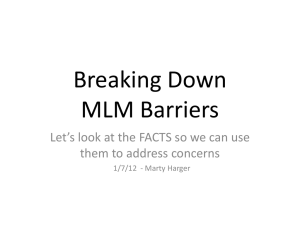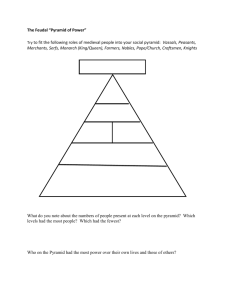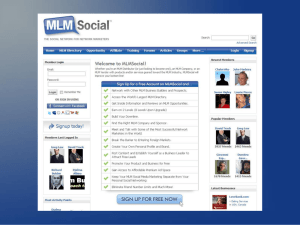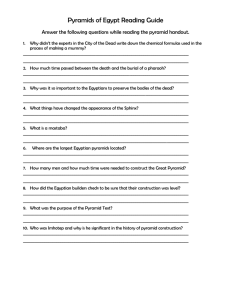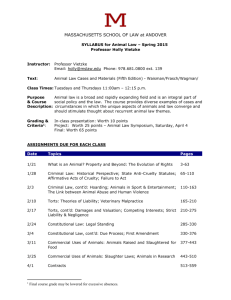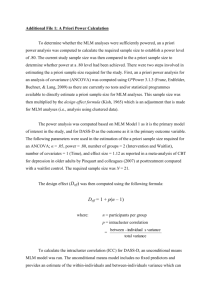Tennessee State MLM Law
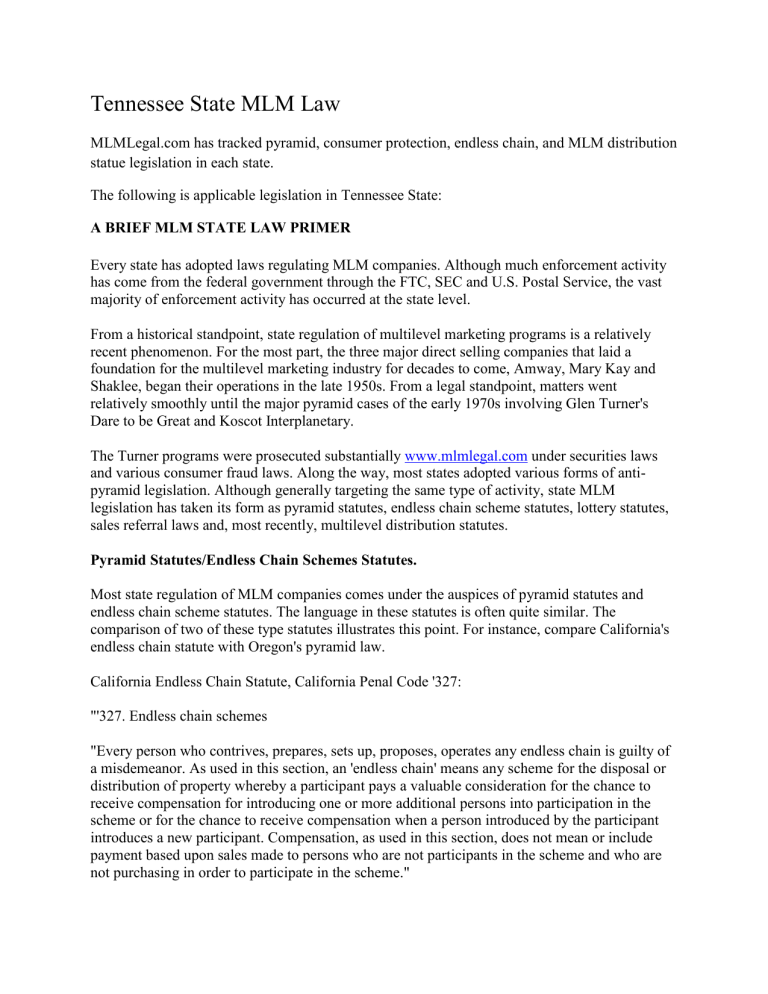
Tennessee State MLM Law
MLMLegal.com has tracked pyramid, consumer protection, endless chain, and MLM distribution statue legislation in each state.
The following is applicable legislation in Tennessee State:
A BRIEF MLM STATE LAW PRIMER
Every state has adopted laws regulating MLM companies. Although much enforcement activity has come from the federal government through the FTC, SEC and U.S. Postal Service, the vast majority of enforcement activity has occurred at the state level.
From a historical standpoint, state regulation of multilevel marketing programs is a relatively recent phenomenon. For the most part, the three major direct selling companies that laid a foundation for the multilevel marketing industry for decades to come, Amway, Mary Kay and
Shaklee, began their operations in the late 1950s. From a legal standpoint, matters went relatively smoothly until the major pyramid cases of the early 1970s involving Glen Turner's
Dare to be Great and Koscot Interplanetary.
The Turner programs were prosecuted substantially www.mlmlegal.com
under securities laws and various consumer fraud laws. Along the way, most states adopted various forms of antipyramid legislation. Although generally targeting the same type of activity, state MLM legislation has taken its form as pyramid statutes, endless chain scheme statutes, lottery statutes, sales referral laws and, most recently, multilevel distribution statutes.
Pyramid Statutes/Endless Chain Schemes Statutes.
Most state regulation of MLM companies comes under the auspices of pyramid statutes and endless chain scheme statutes. The language in these statutes is often quite similar. The comparison of two of these type statutes illustrates this point. For instance, compare California's endless chain statute with Oregon's pyramid law.
California Endless Chain Statute, California Penal Code '327:
"'327. Endless chain schemes
"Every person who contrives, prepares, sets up, proposes, operates any endless chain is guilty of a misdemeanor. As used in this section, an 'endless chain' means any scheme for the disposal or distribution of property whereby a participant pays a valuable consideration for the chance to receive compensation for introducing one or more additional persons into participation in the scheme or for the chance to receive compensation when a person introduced by the participant introduces a new participant. Compensation, as used in this section, does not mean or include payment based upon sales made to persons who are not participants in the scheme and who are not purchasing in order to participate in the scheme."
Oregon Pyramid Statute:
"pyramid club" means a sales device whereby a person, upon condition that the person make an investment, is granted a license or right to solicit or recruit for economic gain one or more additional persons who are also granted such license or right upon condition of making an investment and who may further perpetuate the chain of persons who are granted such license or right upon such condition. "Pyramid club" also includes any such sales device which does not involve the sale or distribution of any real estate, goods or services, including but not limited to a chain letter scheme. A limitation as to the number of persons who may participate, or the presence of additional conditions affecting www.mlmlegal.com
eligibility for such license or right to recruit or solicit or the receipt of economic gain therefrom, does not change the identity of the scheme as a pyramid club. As used herein "investment" means any acquisition, for a consideration other than personal services, of property, tangible or intangible, and includes without limitation, franchises, business opportunities and services. It does not include sales demonstration equipment and materials furnished at cost for use in making sales and not for resale."
As a general matter, the pyramid and endless chain statutes prohibit the payment of a consideration for the right to recruit others for economic gain where the compensation is unrelated to the sale of products or services. This language is very ambiguous and has resulted in legions of cases, many inconsistent in outcome. The ambiguity of the statutes has also led to selective and inconsistent enforcement policies.
Two operative terms "consideration" and "compensation unrelated to sales" are often looked at as follows. A prohibited consideration is generally referring to: (1) an actual monetary fee for the right to engage in the multilevel business, (2) inflated product prices in which the excess product price is viewed as a prohibited consideration, (3) front-loading or inventorying of product in which excessive product purchases are viewed as prohibited consideration for the requirement that individuals make an initial investment of product purchased to engage in the opportunity, (5) where it appears that people are only buying product in order to "buy into the deal," and (6) many statutes, although not all statutes, exempt from the term "prohibited consideration," the purchase of an at cost sales kit or demonstration materials.
The receipt of compensation unrelated to sales typically references: (1) payment of actual headhunting fees for finding other recruits, (2) a program in which sponsors make all of their compensation from override commissions from loading recruits with unnecessary product, (3) a program in which there is no evidence of sales outside the network of distributors.
The following is applicable legislation in Tennessee State:
TENNESSEE
47-18-104. Unfair or deceptive acts prohibited.
(a) Unfair or deceptive acts or practices affecting the conduct of any trade or commerce constitute unlawful acts or practices and are Class B misdemeanors.
(b) Without limiting the scope of subsection (a), the following unfair or deceptive acts or practices affecting the conduct of any trade or commerce are declared to be unlawful and in violation of this part:
(1) Falsely passing off goods or services as those of another;
…
(18) Using or employing a chain referral sales plan in connection with the sale or offer to sell of goods, merchandise, or anything of value, which uses the sales technique, plan, arrangement or agreement in which the buyer or prospective buyer is offered the opportunity to purchase goods or services and, in connection with the purchase, receives the seller's promise or representation that the buyer shall have the right to receive compensation or consideration in any form for furnishing to the seller the names of other prospective buyers if the receipt of compensation or consideration is contingent upon the occurrence of an event subsequent to the time the buyer purchases the merchandise or goods;
…
(20) Selling or offering to sell, either directly or associated with the sale of goods or services, a right of participation in a pyramid distributorship. As used in this subdivision, a "pyramid distributorship" means any sales plan or operation for the sale or distribution of goods, services or other property wherein a person for a consideration acquires the opportunity to receive a pecuniary benefit, which is not primarily contingent on the volume or quantity of goods, services or other property sold or delivered to consumers, and is based upon the inducement of additional persons, by such person or others, regardless of number, to participate in the same plan or operation;
…
(27) Engaging in any other act or practice which is deceptive to the consumer or to any other person;
On any given day you can catch Jeffrey Babener, editor of www.mlmlegal.com
, lecturing on
Network Marketing at the University of Texas or the University of Illinois, addressing thousands of distributors in Los Angeles, Bangkok, Tokyo and Russia, or writing a new book on Network
Marketing, an article for Entrepreneur Magazine or a chapter for a University textbook. Over two decades he has served as marketing and legal advisor to some of the world's largest direct selling companies, the likes of Avon, Nikken, Shaklee, Tupperware, Prepaid Legal, Longaberger,
Melaleuca, Discovery Toys, Usana, Amazon Herb, NuSkin, Cell Tech, Sunrider…. and he has provided counsel to the most successful telecom network marketing companies...Excel, ACN,
World Connect, ITI, Acceris, AOL Select and Network 2000. An active spokesperson for the industry, he has assisted in new legislation and served on the Lawyer's Council, Government
Relations Committee and Internet Task Force of the Direct Selling Association (DSA) as well as serving as General Counsel for the Multilevel Marketing International Association. He is an
MLM attorney supplier member of the DSA and has served as legal counsel and MLM consultant
on MLM law issues for many DSA companies. He is author of multiple books, including,
Network Marketing: What You Should Know, Network Marketer's Guide To Success, Tax Guide for MLM/Direct Sellers, Starting and Running the Successful MLM Company, The MLM
Corporate Handbook and Window of Opportunity. He is author of countless articles on network marketing, many of which can be found at www.mlmlegal.com
where he is the editor. You will see his articles and interviews in such publications as Money, Atlantic Monthly, Success,
Entrepreneur, Business Startups, Home Office Computing, Inc., Money Makers Monthly, etc. He has been chairman of numerous industry conference series, including, Starting and Running the
Successful MLM Company, The MLM Entrepreneur Series and The MLM Masters series. He has served as the close advisor to scores of MLM Companies and their distributors, comprising millions of distributors and billions of dollars in sales. Mr. Babener is a graduate of the
University of Southern California Law School, where he served as editor of the USC Law
Review. After an appointment to be an advisor law clerk to a U.S. Federal Judge, he went on to become a member of the California and Oregon State Bar, where he has also served as chairman of the Oregon State Bar Committee on Judicial Administration. He has exclusively practiced in the area of direct selling for over 20 years. A Regulatory Update for MLM,Direct
Selling, Network Marketing, Direct Sales, Party Plan Independent Distributors and Companies.

